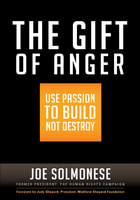The Five Rows of Responsibility
Each of us influences only about five rows, but in
that sphere of influence the world is changed.
Responsibility changes everything. The moment we decide that we are the ones who are capable of and responsible for changing things everything shifts. This is a book about how your marriage, your career, your life, your company, and our world gets better whenever one of us simply decides to step up and do what we can do in our sphere of influence.
Seeing ourselves as responsible and powerful to change things is a game changer in the deepest sense. The shift is akin to the childhood game of tag. When I was a child in New York City, we played endless hours of this game. One person was It and had to run around trying to tag someone else. The moment you were tagged, the whole game changed.
Well, you are It! You are responsible for your own happiness, for the success of your relationships, for the morale of your workplace, for the success of the company where you work, and for your life. What's more, you are responsible for poverty, for global warming, for your neighborhood, for your school, and for homelessness. Better said, we are all It. That is, when each of us takes responsibility, stepping up to do what we can, everything gets better. Not only that, but when we step up and take responsibility, the game of life and work is more fun and more rewarding. We find more success.
This is not to say that there aren't times when our lives, our happiness, and our success are significantly influenced by outside forces. Sometimes our manager is a tyrant, sometimes parents aren't able to give us a good foundation, sometimes our spouse is more to blame than we are, and sometimes the problems we face (such as global warming) seem so intractable that it is easy to feel like we can't make a difference. But when we choose to focus on what WE can do and how WE can act, we are suddenly powerful. Victims simply don't create change.
I am not talking about “the burden of responsibility.” Many of us already feel too responsible, taking on the blame and feeling a need to fix everything. The responsibility I refer to is freeing. It is about choosing to do what you can in your sphere of influence without worrying about what anyone else is or is not doing.
The Five Rows of Responsibility
One of the simplest yet most profound experiences of my life happened to me on an airplane in January 2002. It was an icy, snowy day in Cleveland, and I arrived just in time to be the last one on the plane before they closed the door. I quickly realized that everyone around me was in a foul mood. No sooner had I sat down than the stranger next to me said, “My boss is such an idiot! He is sending me up here to this godforsaken place. The client never buys anything and never will buy anything. My boss is such an idiot.” Having overheard her diatribe, the man across the aisle chimed in with his own commentary: “Not only is your boss an idiot, lady, but the people who run this airline are idiots too. We have no leg room, we are late as always, and look at the ice on these wings—we're probably going to die on this thing.”
Once we took off, the mood continued, and the negative virus spread. Soon everyone around me was complaining about the world, their companies, and their spouses, and it just kept getting worse. Even I was calling my boss an idiot, and I work for myself! It was a veritable feast of negativity and victim thinking. Like all feasts of junk food, the feast felt good going down but left all of us feeling worse.
About five rows in front of me at the bulkhead a mother sat with her two-year-old son. All through the first half hour of the flight, the kid kept trying without success to get his head above the seat to look back. A few times I saw his head, another time his eyebrows, but it was not until about forty minutes into the flight that he finally got his head above the seat and rested his chin and hands on the seat. He looked something like a chipmunk.
When he saw all of the passengers behind him, he smiled the biggest, most natural smile you've ever seen. Within moments that child transformed the five rows behind him. The boss-is-an-idiot lady started talking to me about her kids. The airline-is-run-by-idiots guy stopped complaining and began making faces as he tried to get the boy to smile again. Someone said, “We should all be a little more positive like that kid,” and suggested I go borrow him. When I offered to take the child off the mother's hands for a little bit, his mother gladly accepted the break, and the boy's visit to row 6 changed the mood within minutes.
Sitting there at 30,000 feet rattling across the Midwest, I had an epiphany that I have come to call The Five Rows Principle: most of us have tremendous power to influence about five rows around us, but we spend most of our time thinking about and talking about what someone else should do in some other plane or row. What's more, almost every problem we face—from global warming and terrorism to poor morale in a business and bullying in schools—is a five rows problem. That is, the problem is merely the aggregate of what each of us is doing in our five rows.
Let's take an example of a seemingly intractable problem. Why is global warming and a deteriorating environment such a vexing problem? Because the environment, like most problems, is a five rows problem. You could say the government needs to step up, but the problem is the aggregate result of decisions each one of us (and our companies) makes in our five rows—the cars we drive, the trips we take or don't take, the food we eat, the choices we make in terms of what we buy, what we reuse or recycle, and so on. On one hand our five rows don't matter very much at all, but on the other hand the problem will be solved only when each of us does what we can in our five rows.
Take a company where bad service and low morale have become the norm. You could say that the CEO needs to fix it, but soon you would realize that for the most part service and morale are both five rows problems. Things will change only when individuals step up in their five rows and treat the customer better or do their part to improve morale. What's more, individuals need to focus on what THEY can do in their five rows instead of what someone else should do. The CEO should be worried about what she can do in her sphere, the managers in theirs, and the front-line people in their sphere. The more people focus on taking action themselves, the more likely we are to make progress. If we focus on our five rows, we can create change. We can't control what anyone else does, only what we do.
This conclusion applies as easily to our personal lives as to these larger landscapes. Reeling from a quarrel with my wife that day on my ride to the airport, I was focused on what my wife needed to do to fix our marriage instead of taking responsibility for my “five rows.” The more I focused on what she should do, the less powerful I felt, and the less impact I could have. Whether it is in our personal or our communal life, we must always begin by asking what we can do, not what others should do.
If we all begin in our five rows, every problem we face can be fixed. Every challenge we have can be solved. Every time you are tempted to think it does not matter if you step up, remember the five rows principle: if each of us begins where we are and does what we can, anything is possible. Pointing to someone else is easy and ultimately means no one does anything.
Stepping Up: Claiming Our Power to Change Things
The good news is that every day some people decide they can, must, and will change things. I call this stepping up. It is the simple act of seeing a need and deciding that you are the right person to do something about it.
That is exactly what happened in 1992 when two young teachers, Mike Feinberg and Dave Levin, began their teaching careers in Houston, Texas, through Teach for America, an innovative program established in 1990 to place top college graduates as teachers in high-need public schools. Teach for America is an organization that was founded by Wendy Kopp, an example of someone who stepped up. Her undergraduate thesis at Princeton convinced her that an elite corps of teachers would draw many of the best and brightest of her generation to teach in low income communities. As a 21-year-old, she raised $2.5 million and started with a corps of five hundred teachers in 1990. Today, Teach for America has a corps of over twenty-eight thousand teachers. Wendy has written a book, A Chance to Make History (Public Affairs, 2010), which details some of the lessons learned from Teach for America.
Mike and Dave left the program in the fall of 1992 and their first assignment was at two inner city elementary schools with poor records of academic success. The first months were hard, and by midyear their classes were, by their own description, a disaster. While they were failing miserably with the kids, a teacher named Harriett had a classroom just down the hall filled with enthusiastic students chanting, having fun, and learning. Maybe it was not the kids; maybe it was the teacher. Recognizing that situation was Mike and Dave's first act of responsibility.
They befriended Harriett, and she became their mentor. The young teachers learned how to reach even the most difficult kids. By the end of the year, their classrooms were lively and engaged. The year ended on a high note, with students doing homework and performing well. The youngsters proceeded enthusiastically to middle school.
“We na?vely thought we had done it. In one school year we had reformed education,” Mike told me.
Then reality set in. The next term, the students who had gone off to middle school started calling Mike and Dave saying things like, “They don't give us any homework, and we can't take the books home.” By midyear, their former students—kids they were sure they had prepared for life and success—had joined the chorus line of underperformers smoking dope, playing hooky, and joining gangs.
When they first realized the outcome of their good work, Mike and Dave went into a several-month funk. They found themselves sitting alongside others in the teachers lounge pointing outward.
“We pointed fingers at everyone,” Mike said. “We blamed the district, the superintendent, the parents, the community, and even society itself. We had done our job, and everyone else had failed these kids.”
Then one night in 1993 Mike and Dave had their road to Damascus, a Jerry McGuire–like moment of clarity.
“That night, we suddenly stopped pointing the finger out and instead pointed the finger at ourselves,” Mike said. “We looked in the mirror instead of the magnifying glass. We realized that we were the ones who had failed. Whatever we had done as teachers was not enough to prepare them to succeed after they left our class. We asked the question, How could we prepare them for middle school, high school, college, and life? What could we do as teachers that would form a foundation that could not be broken?”
The pair put U2's Achtung Baby CD on repeat, and by 5 a.m. they had outlined an educational revolution called KIPP (Knowledge Is Power Program) on their computer screen. The idea was simple and profound. Start earlier, end later, hold classes every other Saturday morning, give two to three hours of homework every night, and ask the parents, teachers, and students to take personal responsibility by making commitments.
“It was a very spiritual night,” Mike told me. “That night, we realized that if we stepped up we could change things.”
He said, “The basic principle was simple. If we committed ourselves to becoming truly great teachers, to increase the amount of time we were willing to teach the kids, then it was possible to prepare them for success in college and in life. We did not have to revamp the system; we just had to work hard to become better teachers, thus motivating kids to stay longer.”
They went to the principal at Garcia Elementary in Houston and found a receptive audience. When it came time to get approval from the district, however, the answer was initially no.
“They asked us if we were changing the curriculum, and we said no,” Mike said. “We told them smart people have created the curriculum. They said, ‘How can it be educational reform if you are not creating new curriculum?’ Then we said, ‘The kids will start at 7:30 a.m. and end at 5 p.m.’ So they said, ‘So you want to do an early hours and after-school program?’ We said, ‘No. The kids will start early and end late and come in every other Saturday, but it will be one long school day.’ In the end they told us, ‘Look, we don't get it, but, if you can find fifty parents and kids crazy enough to do it, we will let you do it.’ So Dave and I went door to door like vacuum cleaner salesmen, and when we were done, we had the fifty parents and kids who had said yes.”
Years of hard work and many setbacks followed, but the model turned out to be incredibly successful. As of July 2011, KIPP had one hundred and nine schools, sixty-one of them middle schools (grades 5–8), thirty elementary schools (grades Pre-K–4), and eighteen high schools (grades 9–12) serving over thirty-two thousand students in twenty states and the District of Columbia. All but one is a charter school within public school systems, and students are accepted regardless of academic record, prior conduct, or socioeconomic background. About one-third of KIPP's teachers and over half of its principals are alumni of Teach for America (www.teachforamerica.org). Over 80 percent of KIPP students are from low income families, and 95 percent are African American or Latino. Nationally, over 90 percent of KIPP middle school students have gone on to college-preparatory high schools, and over 85 percent of KIPP alumni have gone on to college. These numbers are far above the averages for their respective communities, and the public wants more. In Houston alone, 8,000 students are on a waiting list for 1,200 seats.
Most of all, the work of Mike and Dave and others who followed them has challenged a longstanding paradigm that inner city kids were destined to be defined by demographics.[1]
I asked Mike what it takes to step up and change things. “First you can't be about blaming others,” he said. “Our first reaction was to point out. But you can't do anything about what is out there. When you look in the mirror, suddenly you have the power to do something.” Not coincidentally, KIPP schools are built on the same simple philosophy that there are no shortcuts. If you work hard, you will achieve. It is a message of self-responsibility in its purest form. If you are not succeeding, look in the mirror.
Such sentiments are enough to craze a person who has a disdain for motivational speakers or inspirational books, but the results are too compelling. The moment we look outside instead of inside, we are like Superman around kryptonite: our power disappears. Even the message at KIPP is right on. They don't say that demographics don't influence destiny, only that it does not determine destiny. The distinction is subtle but profound. Our community, our parents, our zip code, our upbringing, our height, our looks, and the lucky breaks we get—all of these things influence our destiny, but they don't determine it. That is why personal responsibility is vitally important. The moment we focus on what we can change instead of what others must do, everything changes.
Malcolm Gladwell takes a look at this concept in his fascinating book, Outliers. Although he shows that being in the right place at the right time does significantly influence achievement, he also demonstrates that ten thousand hours of practice will make you an expert in just about anything. My point is that you can't do anything about the right time and the right place, but you can do something about yourself, and I believe what you do is ultimately the most important factor in achievement.
The Responsibility Ripple
Have you ever noticed that, when you yawn, it's highly likely someone around you will also yawn? Recently, I yawned, and even my dog yawned! We all know that yawning is contagious, but have you ever wondered why?
After years of trying to answer that question, researchers concluded that the most obvious answer is the correct one: we yawn because imitating the behavior of others is a natural human trait. We yawn together for the same reason that we smile when a stranger smiles at us or that we laugh when someone else laughs at a joke, even if we don't get the joke. We humans are social beings, and fitting in matters to us. This tendency to imitate may have its roots early in our evolution, because the more we mirror the behavior of others the less likely we are to be seen as a threat.
Human behavior is contagious, good and bad. All of us have had the experience of entering a break room and seeing how one person's complaining about how bad things are “around here” leads to everyone else's joining in the whining feast. We have also had the opposite experience, witnessing how the energy shifts when a few people start talking about how to fix things instead of how broken things are.
Responsibility is contagious. I call this the responsibility ripple. When someone steps up to change things, others step up and find courage they had not previously found.
Standing Up to the Mafia in Naples
A case in point is Silvana Fucito, a shopkeeper in Naples, Italy, who decided to stand up to the Mafia and ignited a firestorm of resistance right in the heart of Mafia territory. Naples is known for its pizza, but what concerned Silvana was il pizzo, the Italian term for protection money merchants pay to local Mafia thugs.
Alongside her husband, Silvana ran a wholesale paint store, a family business that had been around almost thirty years. After years of hard work the business had become quite profitable and grown to have ten employees, but along with the growing profits came more-frequent visits from local thugs and requests for ever-increasing sums of money. The payments were common throughout her neighborhood and had become a resented but accepted part of doing business. Thugs manhandled her husband, helped themselves to merchandise, forced business owners to cash checks of dubious origin, and issued demands that kept getting larger. Silvana reached a boiling point and visited the home of the thugs. She confronted them, saying that she could no longer pay, but pay she did.
In September 2002, the apartment building that housed her family paint store was torched. Except for the good fortune of a mother who happened to be awake late at night feeding an infant, the fire might have cost many lives. At first Silvana was outraged about losing the business she had worked hard to build and the fact that twenty families had come so close to perishing. Yet it was the reaction of many of her neighbors that finally spurred Silvana Fucito into stepping up. Instead of blaming the Mafia, many of her neighbors blamed her for speaking up and fighting back. Sadly, this is often the case; when someone steps up, their actions so disturb the status quo that bystanders blame the one who steps up for kicking a hornet's nest.
Turns out, the Mafia burned the wrong woman's store.
A few months after the fire, Silvana founded the San Giovanni Anti-Racket Association aimed at getting residents and the government to put an end to intimidation. In the year before the association was founded, residents reported fewer than two hundred cases of extortion to the police but the number grew to over two thousand within a year! “No Pizzo” signs began to appear in the windows of merchants throughout Naples. The Italian government, inspired and perhaps embarrassed by the courage of ordinary citizens, began to crack down on the Mafia by seizing properties and closing Mafia enterprises. But Silvana and her association made a big dent in the problem.
In a Time magazine article in 2005 she was quoted as saying, “Everyone talks about the politicians and the police, but it is first of all up to us, the citizens. If it's a pizzo or muggings or drugs in your neighborhood, it should make you burn with anger. It must always be the citizens first to demand respect for themselves.” (You can read about Silvana Fucito at and about the movement in a Financial Times article, “Naples Fight to Reclaim the Mafia Badlands,” by Guy Dinmore dated September 27, 2010.)
Silvana Fucito acted and inspired others to do the same. Her actions created a ripple effect, prompting others to step up even though some people at first blamed her for the potentially deadly fire. While she still requires round-the-clock protection, her choice to step up when most would have backed down started a ripple that continues to advance.
Her story is not unique. Throughout this book you will see time and again that choosing to act inspires and challenges others to act. Responsibility has ripples.
The Responsibility Ripple in Daily Life
While the responsibility ripple has an impact on large issues such as standing up to thugs and transforming inner city schools, the effect of this principle can be much more personal. Anyone in an intimate relationship has experienced at some point the cycle of blame that occurs when each partner sees the couple's problems as the other person's fault.
A friend of mine experienced this cycle when his wife blamed him for her lack of personal time, saying that if he would step up and take more responsibility around the house then she could have more time for herself. From his perspective, she took on duties that did not need to be done and she needed to get their teenage children to take more responsibility. He also felt that part of her enjoyed playing the martyr and that she focused on the family even when she had free time. The two were locked in a turf war with each one blaming the other.
I suggested to him that the situation might shift if he took responsibility for his part. “Maybe she does take on duties that are not necessary,” I told him. “Perhaps the kids do need to take more on for themselves. Maybe part of her does want to play the martyr, but you can't do anything about that.” I advised him to step up and take responsibility for whatever part of the problem he thought was his. He did just that, telling his wife that she was right, that he had let her take on too much, and that he needed to step up and do more. He began taking on more duties, helping around the house, and taking on more responsibility with their teenage children.
An amazing thing happened. A few weeks later she said to him, “You know, I know that some of this is my doing too. You are probably right that the kids have learned to count on me for everything. Maybe I need to do what I need to do for myself and trust others to step up.”
Now don't get me wrong; marital bliss did not immediately follow, but the energy suddenly shifted from who was to blame to who could do what to fix things. But someone had to take responsibility first. Responsibility created ripples.
Here is another example. My partner, a teacher, had a run-in with a fellow teacher. Her colleague decided to escalate the situation and asked the school principal to intervene and facilitate a conversation about the incident. My partner was furious, as she felt her colleague was entirely at fault, had blown the situation out of proportion, and now had violated an unwritten rule among teachers by not dealing with her directly.
The night before she was going into the facilitated meeting with her fellow teacher, she told me how she was going to “let her have it” and show her how it was all her fault. I suggested that perhaps she might have had some small part in creating the problem. Through discussion, she began to realize that in some small but important ways she too had escalated the situation. The next day, she began the meeting by apologizing for some things she had done that aggravated the problem and said she was even more sorry that her colleague had felt she'd been insensitive. Not surprisingly, that act of taking some responsibility opened up the possibility for her colleague to look at herself. The meeting wound up being productive instead of confrontational.
In every situation, we bear some of the responsibility. When we focus on our part instead of other people's part, something shifts. This simple idea is one of the greatest lessons we can give our children: focus on how you are contributing to any problem instead of what someone else is doing. Take responsibility, and most of the time someone else will take responsibility in return.
The Fascinating Study of Lights in the Theatre
A friend of mine told me about a fascinating study he had read about in university. Researchers filled a movie theatre with participants and projected a small light on the front wall. The study participants were told to raise their hand any time they saw the light move. Several confederates—that is, research team members posing as participants—also sat in the theatre.
After about ten minutes one confederate raised his hand indicating that he had seen the light move. A minute later, another confederate raised his hand. Soon, large numbers of participants also raised their hands to say they had seen the light move. By the end of the study, most participants had said the light had moved, even though the light never moved.
Our human tendency to follow the behavior of others is deeply engrained, as illustrated in that study. This tendency has negative consequences when groups of people act together as a riotous mob. But this trait also means that when we choose to step up to create positive change chances are very good that we will start a chain whose end we cannot ascertain.
Ways to Step Up
image Catch yourself blaming someone for a problem. When you find yourself in that position, ask yourself, “In what way am I contributing to the problem?” Ask “what can I do to make things better?”
image Identify your five rows. Notice who around you might be affected by your actions. If you start smiling more, think how many people around you will be smiling back!
注释:
[1]The KIPP story is not without controversy. Some people suggest that organizers have skimmed the best students and the most involved parents so that the KIPP student group is unique. Thus, the theory goes, such students would have thrived in any school, and putting them in a separate program may even harm the schools they vacate.
Still, the KIPP program has inspired many other efforts that have produced similar results. Geoffrey Canada, in his book Whatever It Takes, credits KIPP for influencing what he accomplished in Harlem. My own view is that the results speak for themselves. If you want to see this in real time, rent the film Waiting for Superman.
People also ask whether KIPP teachers are paid extra for those extra hours. Rodrigo Herrera, KIPP's chief people officer, told me, “Teacher salaries in many KIPP regions are between 5 and 10 percent more than what local districts pay. For recruiting, we notice that the great teachers in a traditional district who give their students their all are typically already working longer hours. The difference is that at KIPP they get paid for that. The reality is that the people we attract aren't driven by the salary. We want to pay them enough so they don't worry about the money, but they come to us because of the high expectations for student achievement and want to work with other teachers who share the same perspective.”















